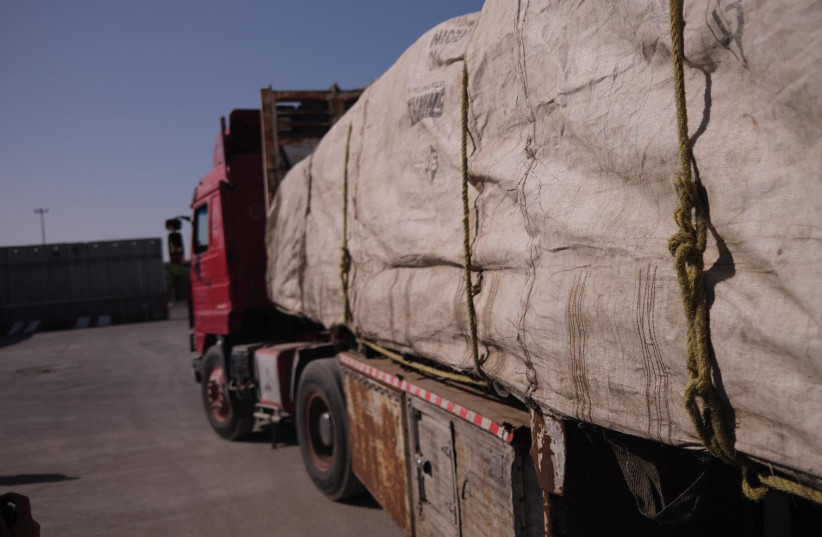Israeli news has repeatedly covered stories of aid entering Gaza only to be stolen by Hamas or looted by desperate Palestinian civilians. While these incidents are likely rampant, one of the better-known reports of this was from mid-December when Kan released footage of alleged armed individuals stealing UAE-donated aid on the streets of Gaza. In reality, the men seen atop the truck in that footage are not Hamas or criminal gangs but local Palestinians hired by the United Arab Emirates to ensure that their aid is delivered safely to those who need it most.
Numerous countries are playing a role in Gaza, but not all may be as well coordinated or as altruistic.
Qatar, for example, recently brokered a deal to deliver medicine to Israeli hostages held by Hamas in Gaza. While playing a central role in the delivery of aid, as well as in negotiating for the release of Israeli captives seems praiseworthy, the reality is that the Qatari government has long been known as the terror group’s most important patron and the gracious host of Hamas’ most senior leaders.
Playing all sides in the conflict
Qatar is playing all sides, gaining points for negotiating on behalf of Israel with the very murderous group they lavishly domicile, while the civilians in Gaza suffer from the results of Hamas’s actions.
The UAE, on the other hand, is working daily to improve the humanitarian situation in close coordination with the Israeli and other regional governments.

Along with countries such as Bahrain, Jordan, and Egypt, the UAE maintains strong open ties with Israel, but Bahrain is its only ally in so singularly and consistently denouncing extremism.
The UAE is providing unconditional humanitarian aid to Gaza, without any of the political brinkmanship of some other actors. Since the start of the war, it has sent over 140 airlifts to Gaza; set up six desalination stations; and delivered over 200 trucks of aid along with quietly opening a 150-bed field hospital which has so far treated around 1,700 patients. It has also transferred hundreds more patients to Abu Dhabi for further care.
The UAE’s aid does not strengthen Hamas.
The Emirate’s efforts to ensure and secure aid delivered safely within Gaza are a testament to that. While Qatar is playing all sides as well as sheltering and legitimizing Hamas, the UAE’s humanitarian contributions during the war serve only responsible parties and innocent Palestinian civilians while harming no one.
All of this is being done without a major press campaign or expectations of praise from allies or enemies. The UAE is simply doing the right things in Gaza for the right reasons, proving they are a reliable strategic partner for building a better future in Gaza.
The same cannot be said of those who claim to help while sheltering Hamas leaders.
The writer is co-founder of the Emma Lazarus Institute, a think tank forging shared values between the democratic West and moderate East. He is also CEO of Potomac Strategy, a consultancy advising clients, including GCC governments, on geopolitics, public safety, and international cooperation.
